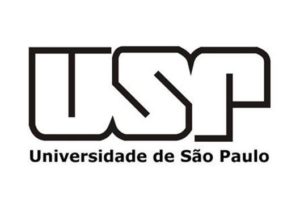PARTNERS
To respond to these challenges, SENSINAIR project brings together researchers from 3 partner institutions with multidisciplinary expertise, from both Porto (Portugal) and São Paulo (Brazil).
FEUP (Faculty of Engineering, University of Porto) is the largest faculty of University of Porto (UP), being located in the Porto Innovation District where the strong presence of engineering technologies, health sciences and entrepreneurship lend considerable impetus to the process of innovation. At FEUP this project will be hosted by LEPABE – Laboratory for Process Engineering, Environment, Biotechnology and Energy, consistently classified as “Excellent” by various international avaliation panels, and in which collaborative research has been one of top priorities expressed by the large number of projects with national and international companies and other research institutions. LEPABE-FEUP team has been doing research for years on the area of air quality, beginning in ambient air quality and its effects on the human health, and in the latter years more focused on IAQ. In this field of research, LEPABE-FEUP team acquired a considerable amount of expertise in studying indoor air quality in nursery and primary schools, mainly coordination of a previous research project (INAIRCHILD).
Major tasks in SENSINAIR: Project coordination in Portugal (Principal Investigator is Sofia Sousa), indoor air quality characterization in nursery and primary schools (in Porto), validating / calibrating low-cost sensors, development of indoor air pollution mitigation measures, and modelling exposure assessment.
As one of the major hospitals in Portugal, Centro Hospitalar Universitário de São João (CHUSJ) mission is to provide the best health care, with high levels of competence and excellence, encouraging pre and post graduated training and research. CHUSJ is considered one of the national and even international reference health institutions for several medical areas, including paediatrics. CHUSJ team are medical doctors (pediatricians), specialized in pneumology. They were also part of the previous INAIRCHILD project, in which they were responsible for asthma diagnosis in children attending nursery and primary schools in Portugal.
Major tasks in SENSINAIR: physical health evaluation, including asthma diagnosis, in nursery and primary schoolchildren (in Porto).
São Paulo is the most populated city in Brazil and even in all South hemisphere. In this context, the University of São Paulo (USP) is a national and international reference in all fields of teaching and research, which is proven by its position in reference rankings, especially due to the scientific production. Inside USP, the Institute of Advanced Studies (IEA) has the mission to research and to discuss, comprehensively, fundamental issues of new ideas and contributing to the analysis of social issues and the development of public policies. IEA-USP team is led by a medical doctor, who is a worldwide expert in air quality and health issues; he was a member of the World Health Organization committees for air quality guidelines and carcinogenic potential. IEA-USP team are leading experts in studying the epidemiology of human health effects of air pollution, with scientific contributions in world top peer-reviewed journals (e.g. The Lancet).
Major tasks in SENSINAIR: Project coordination in São Paulo (Principal Investigator is Paulo Saldiva), indoor air quality characterization in nursery and primary schools (in São Paulo), contribution to the development of indoor air pollution mitigation measures (in São Paulo), physical health evaluation, including asthma diagnosis, in nursery and primary schoolchildren (in São Paulo), and evaluation of the impact of indoor air pollution on childhood asthma.
In Portugal, the SENSINAIR Project (PTDC/EAM-AMB/32391/2017 - POCI-01-0145-FEDER-032391) is funded by FEDER funds through COMPETE2020 - Programa Operacional Competitividade e Internacionalização (POCI) and by national funds (PIDDAC) through FCT/MCTES.

In Brazil, SENSINAIR project (2018/09011-9) was funded by:






